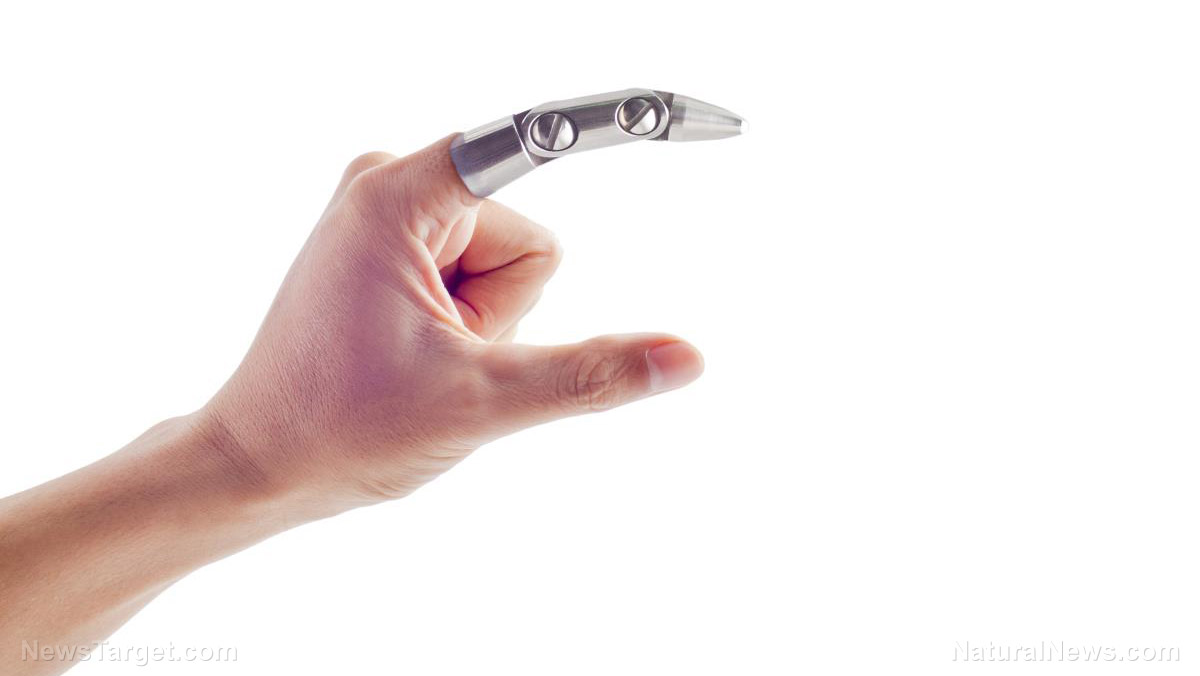
The latest technological development from Korea is an artificial skin that can be sprayed onto the surface of a robot. According to an article in Science Daily, this easily-applied material is laden with sensors that will give robots the same sense of touch that humans enjoy.
That natural ability to feel what we touch is one of the few remaining advantages left to humans. A sense of touch lets us perform all kinds of delicate tasks that require precision and care.
Korea Advanced Institute of Science and Technology (KAIST) researchers have decided to surrender that advantage to robots. They used an all solution-based method to create a strain sensor that is as flexible as human skin and are much less sensitive to the rigors of pressure.
Most electronic skins have trouble fitting themselves on three-dimensional objects that have irregular shapes. However, the new solution can be sprayed on such uneven surfaces, so it can be used on all kinds of mechanical digits and limbs. Furthermore, its creators claim that the material can maintain its sensitivity even when it is covering a very large surface area. It is thus very suited for use in electronic skins for robotic and prosthetic limbs, wearable electronics, and other applications. (Related: Engineers create a type of e-skin that restores the sense of touch for amputees using prosthetics.)
New electronic skin can be applied on objects of any shape or size
Researchers have been working on electronic skin that can copy or even match human skin when it comes to sensing things through touch. An e-skin would be used in both machines designed to be operated by humans and robots that can run on their own.
However, even the most advanced e-skins find it difficult to determine the subtle differences between various types of external stimuli. For one thing, they cannot tell apart "pressure" and "strain."
Furthermore, the typical electrical skin is built as a sleeve or a sheet. But it would be difficult to apply an even layer of the electronics on a device with an irregular shape and rough surface.
KAIST researchers Steve Park and Jung Kim combined their experience in materials science and mechanical engineering, respectively, to find a way around those problems. They produced an electronic skin that can be uniformly applied on 3D surfaces.
Prototype e-skin for robots works the same way as human skin
Furthermore, Park and Kim designed their new electronic skin along the same lines as the organic skin of a human. There are conducting pathways that run through the material. These pathways are capable of reacting to the amount of pressure applied on them.
The KAIST e-skin will perform differently in certain scenarios. If it experiences applied pressure, the pathways will barely change, and the sensors will more or less ignore the pressure. However, under applied strain, the conducting pathways will alter their shapes to conform with the strain on the skin. This changes the resistance encountered by the skin.
These conforming pathways give the e-skin its pressure insensitive characteristics, which increases the accuracy of its sensors. Park and Kim said they are developing strain insensitive versions of the strain sensors already found in the material to complement the pressure sensors.
"Our electronic skin can be mass produced at a low cost and can easily be coated onto complex 3-dimensional surfaces," said Park in an interview. "It is a key technology that can bring us closer to the commercialization of electronic skin for various applications in the near future."
To stay alert about the human-like senses that robots are gaining or being given, follow Robotics.news.
Sources include:
Please contact us for more information.

















